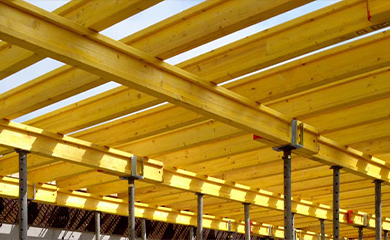Nov . 19, 2024 20:53 Back to list
formwork for concrete columns exporter
Formwork for Concrete Columns Exporter Insights
Concrete columns are essential structural elements in modern construction projects, providing the necessary support and stability to various types of buildings and infrastructure. The process of constructing these robust columns relies heavily on formwork—a temporary or permanent mold into which concrete is poured to achieve the desired shape and finish. As the demand for quality concrete construction rises globally, the role of formwork exporters becomes increasingly significant.
Understanding Formwork
Formwork refers to the systems used to shape and support concrete until it gains sufficient strength to support itself. There are several types of formwork, including traditional timber formwork, metal formwork, and modular systems, each offering different advantages depending on the specific requirements of a project. For concrete columns, the primary function of formwork is to create an accurate and precise mold that will ensure the columns are structurally sound and aesthetically pleasing.
Types of Formwork for Concrete Columns
1. Timber Formwork This is one of the oldest and most common types of formwork used in construction. It is cost-effective and easy to handle, making it a popular choice for small to medium-sized projects. Timber formwork for columns can be customized on-site to fit particular dimensions, although it may require higher labor input and can lead to wastage.
2. Metal Formwork Made from steel or aluminum, metal formwork is durable and reusable, making it a long-term investment for larger projects. It provides a smooth finish, reduces labor costs due to its ease of assembly, and can significantly speed up the construction process. Metal formwork is becoming increasingly favored in commercial construction due to its efficiency and strength.
3. Modular Formwork This system consists of pre-engineered components that can be quickly assembled and disassembled. Modular systems are ideal for repetitive columns in large projects such as high-rise buildings or bridges. They not only save time on-site but also minimize construction waste, aligning with modern sustainable construction practices.
Market Dynamics for Formwork Exporters
formwork for concrete columns exporter

The global construction industry has witnessed significant growth, driven by urbanization and infrastructure development in regions such as Asia-Pacific, North America, and Europe. Consequently, the demand for effective formwork solutions has surged, presenting opportunities for exporters specializing in formwork products.
Exporters need to understand the specific requirements of different markets, including local building codes, preferred materials, and construction techniques. Effective market analysis allows formwork exporters to tailor their products to meet the needs of international clients while ensuring compliance with local regulations.
Challenges Faced by Exporters
While the demand for formwork solutions continues to grow, exporters face several challenges in the market. Fluctuations in raw material prices, especially for timber and metal, can impact production costs and pricing strategies. Additionally, exporters must navigate the complexities of international shipping regulations and tariffs which can affect delivery times and overall profitability.
Furthermore, maintaining quality standards is crucial. In the construction industry, safety is paramount, and any failure related to formwork can lead to catastrophic consequences. Exporters must implement stringent quality control measures and invest in R&D to innovate and improve their products continually.
Future Trends in Formwork Export
Looking ahead, the formwork industry is likely to witness innovations driven by technology. The incorporation of lightweight materials, advanced design software for custom projects, and automated manufacturing processes is expected to enhance efficiency. Additionally, the growing emphasis on sustainable construction will push exporters to explore eco-friendly formwork solutions, such as those made from recycled materials or designed for reusability.
In conclusion, formwork for concrete columns is a pivotal element in construction that requires careful consideration and expertise. Exporters must adapt to the evolving needs of the market while overcoming various challenges. By embracing innovation and focusing on quality, they can position themselves as key players in the global construction supply chain, ultimately contributing to the development of safer and more efficient built environments.
-
Adjustable Heavy Duty Props for Slab Formwork | Strong & Reliable Support
NewsAug.23,2025
-
Adjustable Heavy Duty Props for Slab Formwork - Strong & Safe Support
NewsAug.22,2025
-
Formwork Spring Clamp Factories: Quality & Bulk Supply
NewsAug.21,2025
-
Premium Ringlock Scaffolding | China Manufacturer & Supplier
NewsAug.19,2025
-
Efficient Table Formwork for Fast Slab Construction & Reusability
NewsAug.18,2025
-
Timber Beam H20 Formwork & Shuttering - Durable & Reliable
NewsAug.17,2025